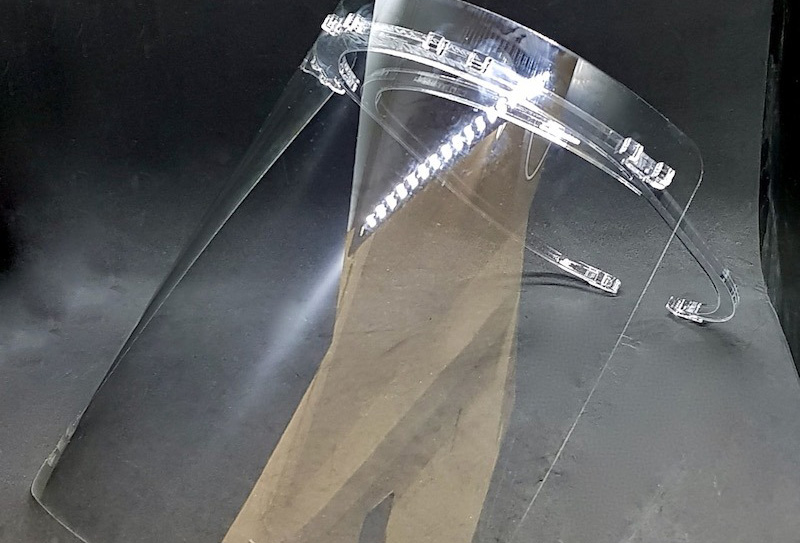The makers say they are not a replacement for the cloth mask
GOSEGO MOTSUMI
As COVID-19 cases escalate by the day, people are becoming more innovative about ways to curb the spread of the virus. See-through masks, although not the newest invention, are among trending means to improve communication while reducing the risk of transmission of the novel Coronavirus.
The half-face shield mask recently hit the market and is the talk of the town. “It is important to note that this is not a replacement of the cloth mask,” said Letsema Gaefhele, who is the co-founder of Shielded BW. “These half-face shield-ed masks are an alternative when we are unable to wear the cloth mask due to the type of work or activity we do.”
Wearing a home made, couture or makeshift mask means people’s lips are covered. Wearing them requires people in professions like public speaking, radio and television presenting, client services, teaching and waiting at tables, among others, to constantly remove them for better communication.
This heightens the risk of infection because the World Health Organization has determined that the COVID-19 virus is airborne. “This is when this shield can be used while the listener observes the speaker’s facial expressions through the clear mask,” said Gaefhele. “The material used is plastic and is thus very easy to clean, is reusable and fog-free.”
The half-face shield mask is especially important for people with hearing loss because the cloth mask can make communication even harder. This is because the deaf and hard of hearing rely on facial cues and lip reading to communicate.
“These shields ensure those in the deaf community can continue to use lip reading and other non-verbal cues,” Gaefhele noted. “The deaf community has always said the cloth mask is a barrier for effective communication. This product should address the concern.”
Asked about Batswana’s response to the mask, Gaefhele said they have received mixed feedback. While some appreciate and have welcomed it, others question effectiveness for the task of preventing infection. “However, we have no feedback that wants us to stop them,” Galefhele said. “We will be donating some masks to the deaf community that has shown interest in Se-rowe soon.”

